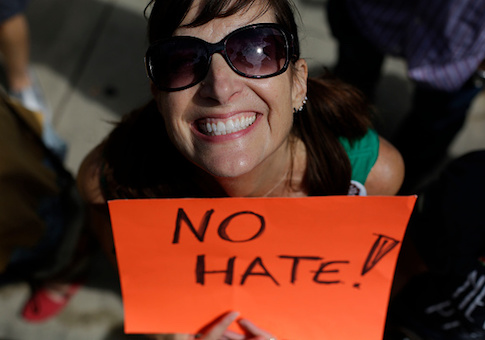Northern Illinois University (NIU) conducted 70 workshops this semester to train students in responding to oppression and privilege.
A series called "Conversations on Diversity and Equity" (CODE), run by the Office of Academic Diversity, Equity and Inclusion (ADEI), was conducted for 191 student organizations, NIU Today reported.
CODE workshops include "Situating the Self," which defines diversity lingo; "Power Dynamics of Difference," where students are taught "critical thinking skills and knowledge regarding how privilege and oppression shape their experiences and perspectives in relationship and communities"; and "Engaging Systems of Oppressions," which "immerses dedicated individuals with the lifelong dedication necessary for social justice work."
ADEI also offers customized workshops that tailor the diversity message to the needs of the participants.
Each CODE session costs NIU $30, according to a university spokesperson.
In the fall semester, more than 900 faculty, staff, and students, of a campus population of about 22,000, participated in diversity training, according to NIU Today, compared to 782 individuals in all of last year.
Jocelyn Santana, NIU's social justice education coordinator, told NIU Today, "That growth is very exciting because NIU is committed to creating initiatives and programs which challenge and dismantle negative assumptions about otherness."
ADEI co-hosted the program with the support of a broad network of campus institutions, including the law school, Student Affairs, Residential Housing, Career Services, and the Office of Student Engagement and Experiential Learning.
ADEI will oversee a two-day CODE Facilitator Training program in January to teach participants about the various dimensions of social identity; help them understand and negotiate their own network of identities and how those forces influence their approach to social justice; and learn conflict intervention.
CODE lessons in disrupting power dynamics may reflect ADEI recommendations for professors on how to identify and shut down microaggressions in the classroom. Provided examples of such "third-part intervention" include how to respond to the "the myth of meritocracy," like a student who says, "Everyone can succeed in this society, if they work hard enough"; or how to confront a student who asks a non-white peer where they are from.
NIU currently has 17 CODE facilitators, including staff from the office of student conduct, housing and dining, and career services, who conduct the workshops.
NIU is climbing out of a severe financial crisis. It received full state funding this fall for the first time since 2015, when Illinois state legislators finally passed a budget in July following a historic two-and-a-half year political stalemate, but at a 10 percent decrease from the last appropriation.
As the university has waited on state legislators to move beyond the impasse, it has been forced to cancel construction projects, cut staff, and delay maintenance work.
Still, NIU moved ahead with its Diversity, Equity and Inclusion three-year plan, which rolled out in 2014.
Joe King, a NIU spokesperson, told the Washington Free Beacon in an email that the items in the three-year plan—such as the creation of a faculty diversity toolkit that offers those tips on microaggressions—"have made significant progress toward their goals… at little or no cost."
ADEI officials did not respond to multiple requests for comment.
